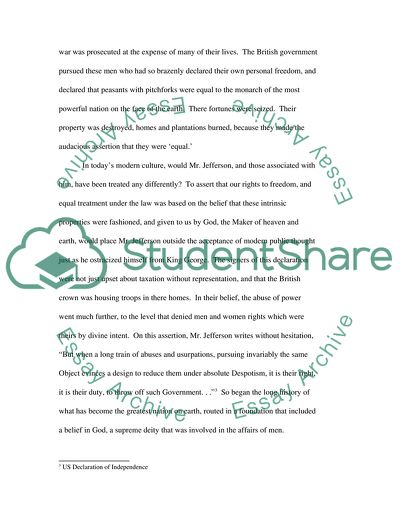Cite this document
(Alexis de Tocqueville and His View on the American Society Essay Example | Topics and Well Written Essays - 1500 words, n.d.)
Alexis de Tocqueville and His View on the American Society Essay Example | Topics and Well Written Essays - 1500 words. https://studentshare.org/philosophy/1704088-philosophy-paper-both-tocqueville-and-weber-believe-that-you-cannot-understand-modern-society-without-understanding-religion-explain-the-arguments-that-each
Alexis de Tocqueville and His View on the American Society Essay Example | Topics and Well Written Essays - 1500 words. https://studentshare.org/philosophy/1704088-philosophy-paper-both-tocqueville-and-weber-believe-that-you-cannot-understand-modern-society-without-understanding-religion-explain-the-arguments-that-each
(Alexis De Tocqueville and His View on the American Society Essay Example | Topics and Well Written Essays - 1500 Words)
Alexis De Tocqueville and His View on the American Society Essay Example | Topics and Well Written Essays - 1500 Words. https://studentshare.org/philosophy/1704088-philosophy-paper-both-tocqueville-and-weber-believe-that-you-cannot-understand-modern-society-without-understanding-religion-explain-the-arguments-that-each.
Alexis De Tocqueville and His View on the American Society Essay Example | Topics and Well Written Essays - 1500 Words. https://studentshare.org/philosophy/1704088-philosophy-paper-both-tocqueville-and-weber-believe-that-you-cannot-understand-modern-society-without-understanding-religion-explain-the-arguments-that-each.
“Alexis De Tocqueville and His View on the American Society Essay Example | Topics and Well Written Essays - 1500 Words”. https://studentshare.org/philosophy/1704088-philosophy-paper-both-tocqueville-and-weber-believe-that-you-cannot-understand-modern-society-without-understanding-religion-explain-the-arguments-that-each.


